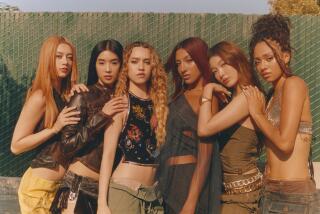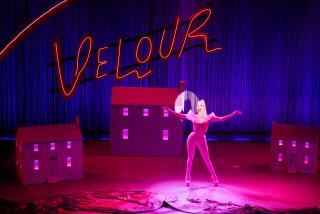6 ‘Drag Race’ hosts on an Olympic opportunity, a global ‘All Stars’ season and more
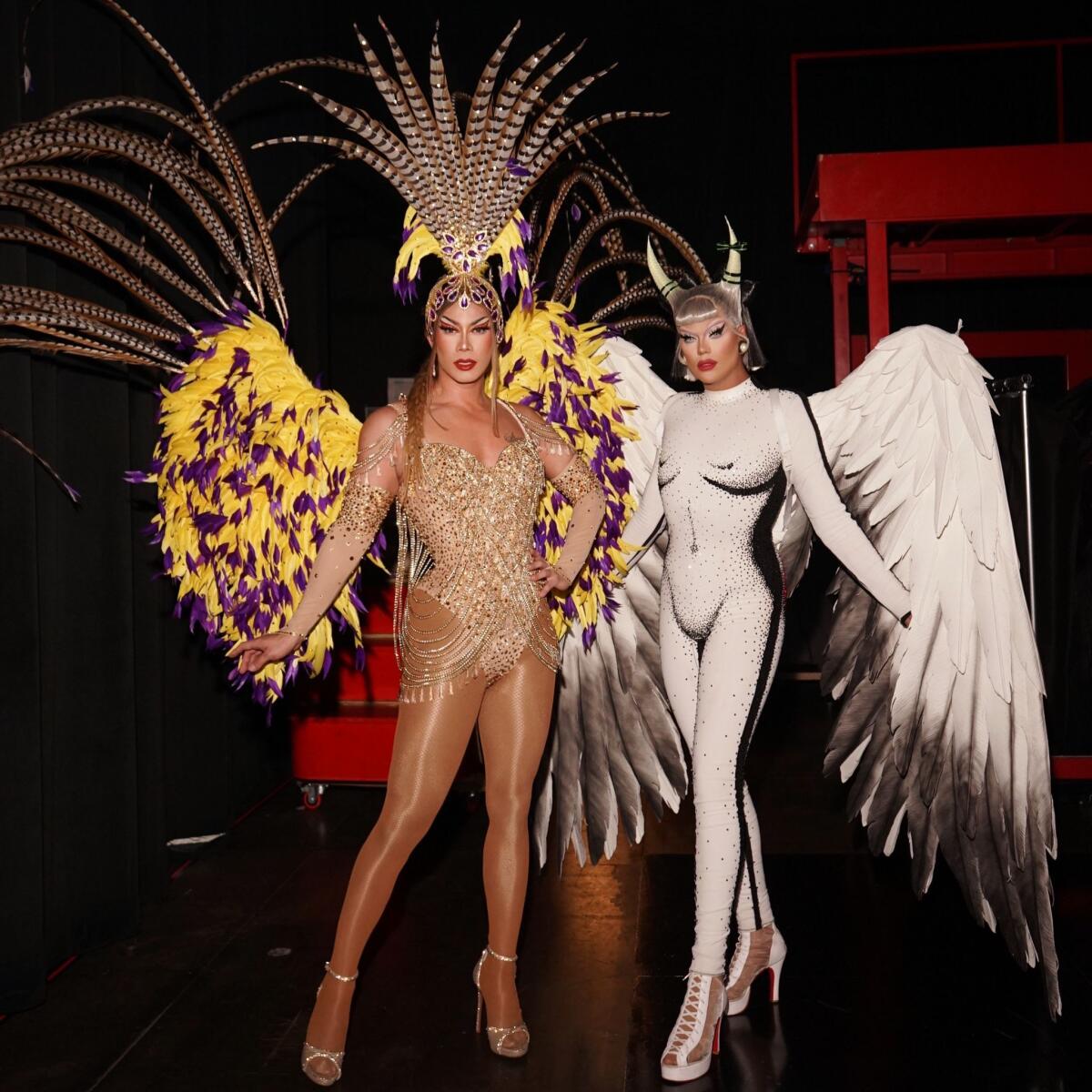
With “Drag Race” firmly ensconced in American pop culture, Mama Ru — that’s RuPaul Charles to the general public — has been busy expanding the reality competition series worldwide. Over the past decade there have been 15 international offshoots of “RuPaul’s Drag Race,” with 11 currently airing or about to begin filming new seasons — roughly two for superfans to watch at any given time, year-round. Many of these spinoffs have been massive hits, turning contestants into international stars and producing programming so stellar it’s at times bested the mother ship. That also means there will be more than enough alumni queens to fill the South Hall at the Los Angeles Convention Center for the eighth RuPaul’s DragCon LA when it kicks off on Friday.
In advance of the event, we caught up with six of the franchise’s hosts — from Thailand, Canada, Spain, Italy, France and Mexico — to discuss their countries’ brands of drag, the politics of “Drag Race” and more.
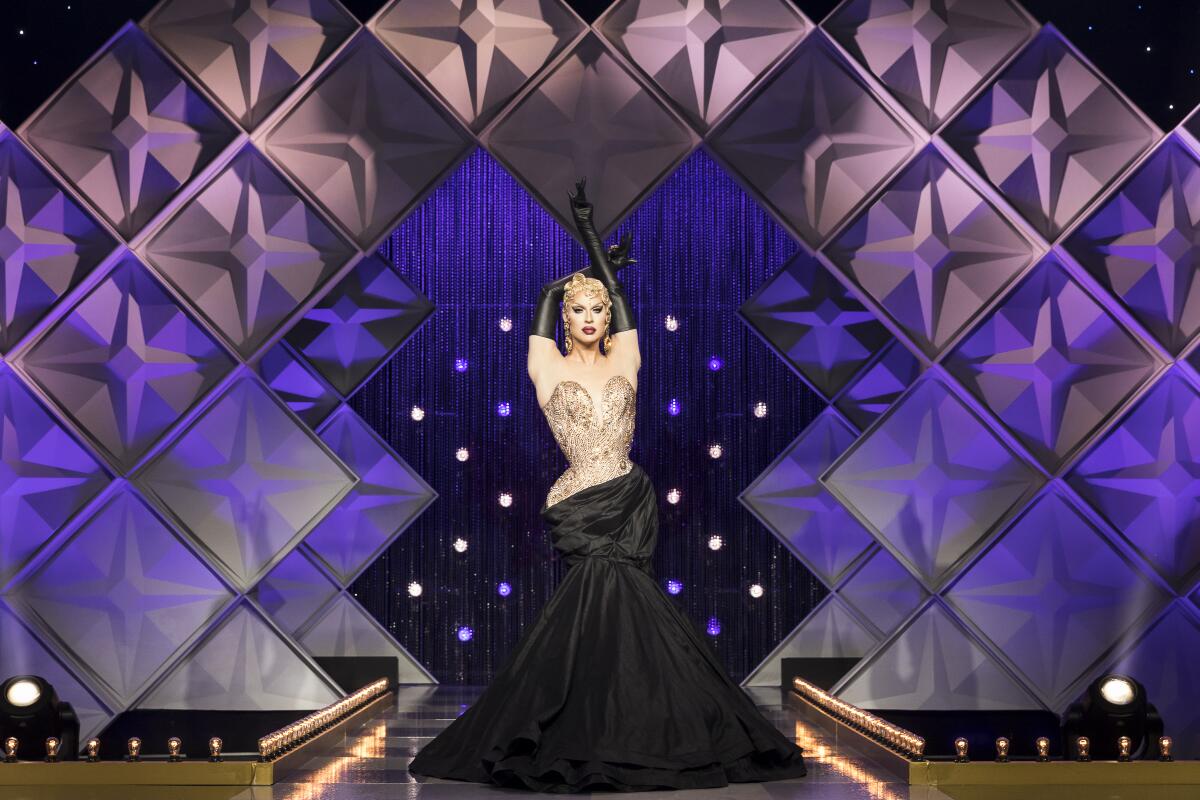
On landing the gig
Brooke Lynn Hytes (“Canada’s Drag Race”): I couldn’t tell you who asked me. I couldn’t tell you how I was asked, and I could not tell you when I was asked. For some reason, it’s like a complete blur. I think I probably just blacked out.
Priscilla (“Drag Race Italia”): I was thinking that I was one of the contestants because they just told me, “We want you in ‘Drag Race Italia.’” The first day that we had a meeting with the production, I met [Season 1 judges] Chiara Francini and Tommaso Zorzi in this huge room. I just went there with my backpack, like a student, with all the people working on the program. And they gave me the script. After one hour, I said, “Let me ask you something, what do I have to do in ‘Drag Race Italia’?” And they told me, “You are going to be one of the judges and you’re going to host the show.” I was crying and laughing like a crazy b—. I think that was the happiest moment of my life.
Nicky Doll (“Drag Race France”): I was truly the first Ru Girl [former contestant] to do it in another language. So it was a big weight on my shoulders, but I knew that I was complaining for so long after [U.S.] Season 12 that if I could’ve done Season 12 in French, I would’ve slayed all of them and I would’ve won the crowd, blah, blah, blah. Now it was my time to actually prove what I was saying, that I could do the job in French.
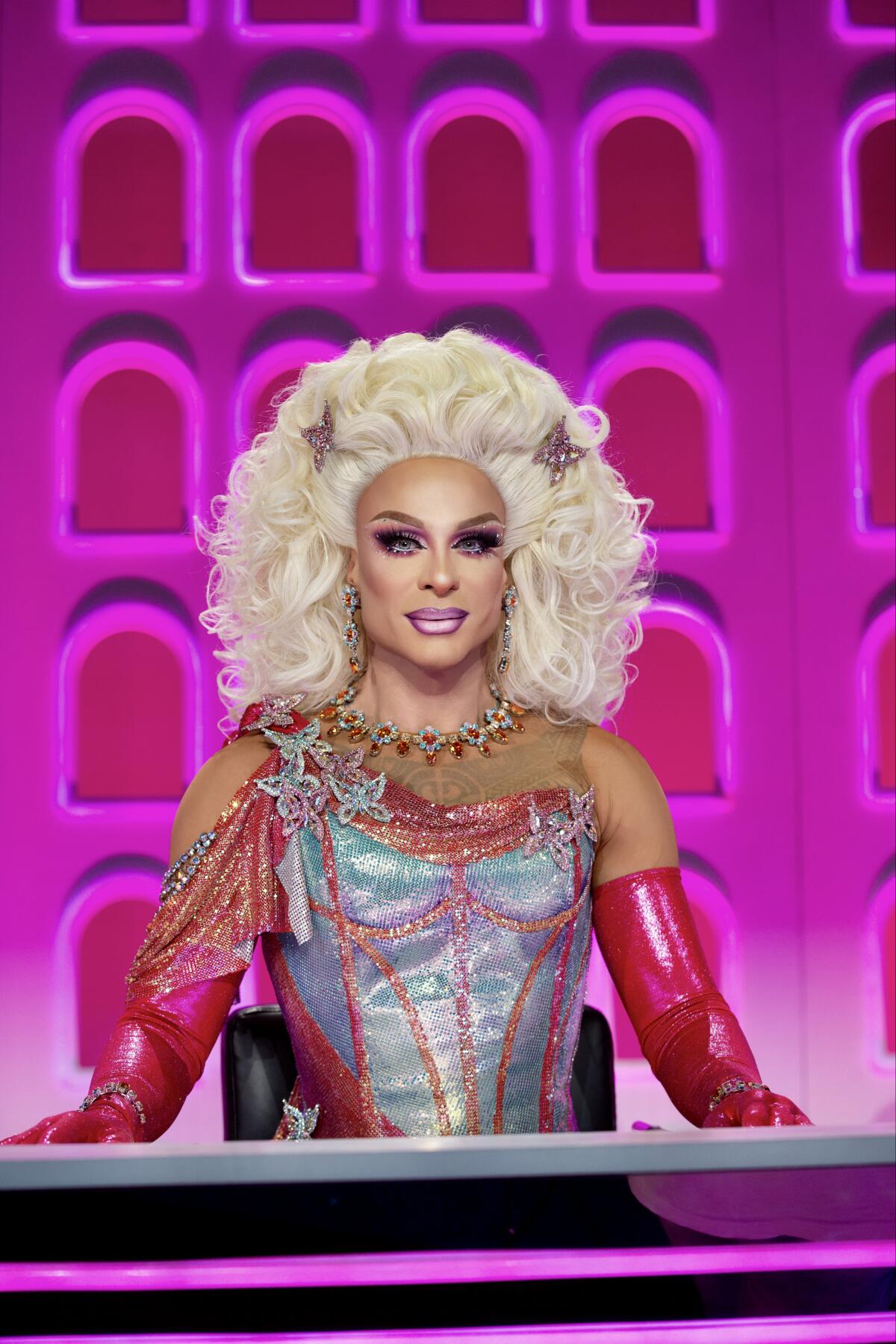
On making ‘Drag Race’ their own
Supremme de Luxe (“Drag Race España”): The production team and I actually wanted to respect the format but not be a copy of RuPaul. RuPaul is an icon. She cannot be repeated. You cannot step on her shoes. What I wanted to do is respect the format but take it and take it to a very personal place, a very Spanish place. ...
The majority of the queens in Spain, they’re not only comedy queens or fashion queens, but there’s always a mix of comedy and dancing or fashion and comedy. Audiences are not coming only to see a nice dress or a nice wig. For example, Bianca Del Rio would be very popular in Spain because people would not only come to see her in a campy outfit, but she is a comedy queen. She has a concept, she interacts with the audience, she does monologues, and she does comedy. And on top of that, she looks pretty.
Lolita Banana (“Drag Race México”): I had the best teacher, who was Nicky Doll. She was so kind to us. She was so emphatic with us because she [had competed on the show]. She knows what it is like to be in our heels. And of course, I took a lot of her style myself. In France, “Lip sync for your life!” is “Lip sync lé-gen-daire!” So actually, I stole it from her, the famous phrase [I use for] Mexico, “Lip sync i-có-ni-co!” Of course, when I see RuPaul, you analyze her way of conducting herself as a host. She’s very frontal all the time. She’s very minimalistic with her moments. The girl knows how to do it and I am sure she does it in one shot every time. She knows what she’s doing. She makes a lot of jokes, but she knows how to use her light and her cameras. So that’s one of the things that I try to learn for my work, is to be as elegant as she is.
Pangina Heals (“Drag Race Thailand”): I think because Thai queens come from a long lineage of trans women and cabaret culture, we are known to be very good lip sync assassins. Most of us are, but not all. … In Thailand the cabaret culture is mainly onstage, mainly made of trans women. You see the cabaret culture in France is mostly biological females. And so it’s so specific to us and that’s something we’re very proud of. And I would say if you compare the queens in Thailand, a lot of people would say we’re wild and quite unhinged, because if you see what they do in the show, I’m like, “Oh my God, these b— are crazy.”
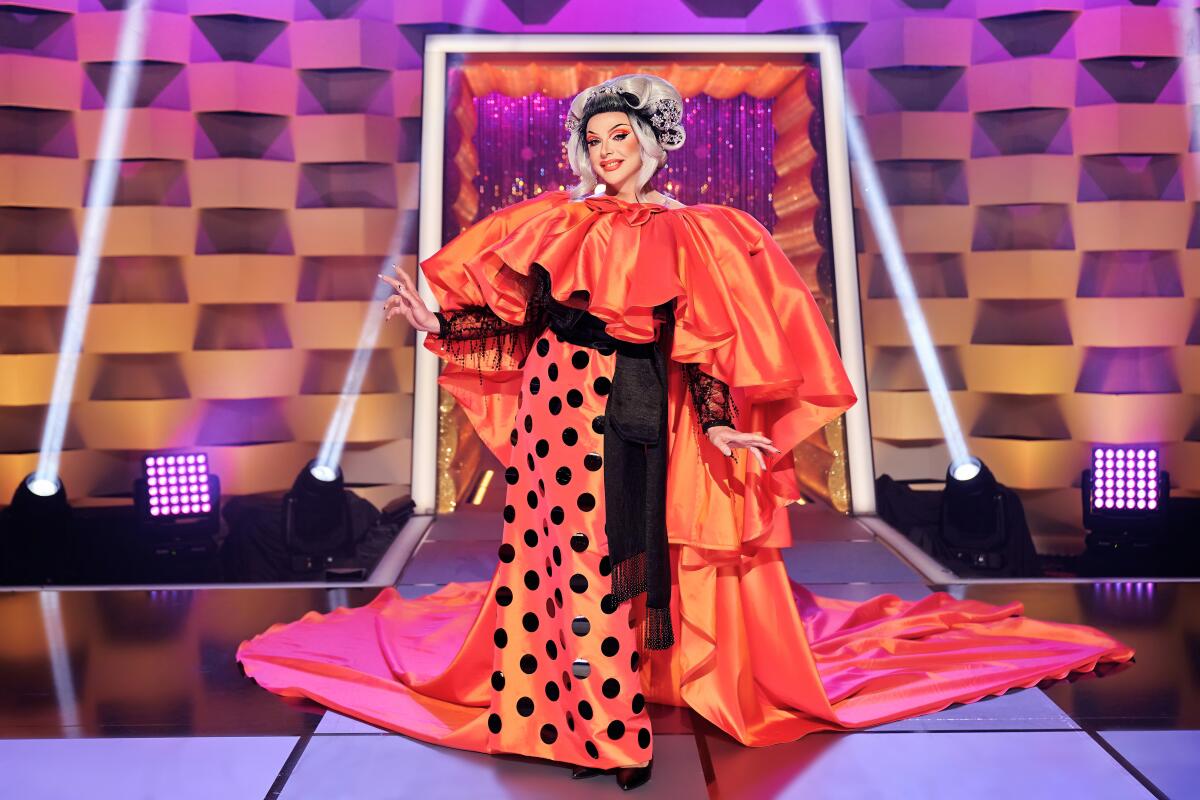
On the politics of drag
Nicky Doll: Besides the U.S., we are the only [franchise] that put on a live finale and we did not know what to expect. It was like, “It’s a drag show, it’s an amazing show, it has amazing reviews. Why not do a live performance with the audience?” And I mean, I got to feel what Ru felt when Sasha Velour pulled that stunt with the rose petals. That was me when I looked at [runner-up] Sara Forever pressing her breasts and all that ink coming down. I was like, “Oh my God, is that what Mama Ru felt?” And I mean, I have shivers telling you because [we filmed at] Le Grand Rex. It’s one of the most beautiful theaters that has so much history in Paris. And it was a queer show with a host in drag and then a whole audience looking at it. And I’m going to try to focus, to not cry.” [She pauses for a moment to gather herself before continuing.] But I would stare at the audience and I would just see so much pride and happiness and representation, and my country needed that. It needed that so much. I left my country because we were lacking that. And to be able to come back to this and to be a spokesperson of it is just a very proud achievement.
Priscilla: Drag is political, and the day before the first episode of the first season here, Parliament didn’t let a law against homophobia pass. It was something that destroyed us because we were waiting for this law. That was the right moment to have “Drag Race Italia” on TV because we were openly talking about homophobia, transphobia and the LGBTQ+ community. I always say “Drag Race Italia” is not just a TV program. It has a very strong impact on society and not only on the LGBTQ+ community — especially on the, let’s say, straight people.
Pangina Heals: We filmed the finale of Season 1 in a huge hall. When I looked out from the stage, there were drag queens filling up the entire space. And mind you, the [term] “drag queen,” we didn’t have that in the Thai language. The word for it means “to dress up as a girl.” Because of the show itself, people now know what drag queens are. And now I see a hall where people are celebrating this art and it’s just insane. There are thousands of people who are cheering for this thing that used to be considered subversive. But now it’s being out in the open, and all I see is a hall of love.
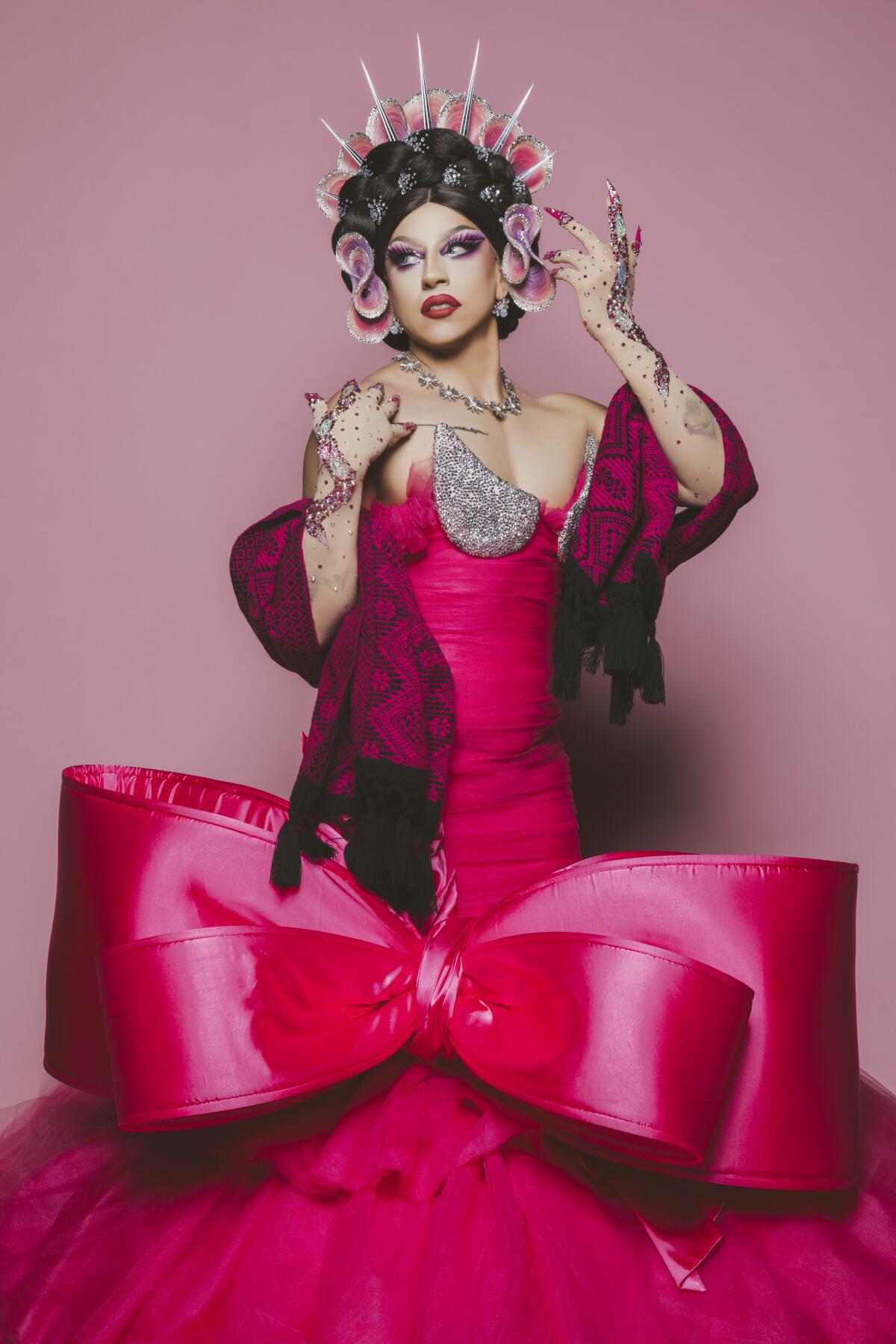
On their most challenging eliminations
Supremme de Luxe: The most difficult elimination that I had to face was the very first elimination in the first season with The Macarena. And I knew what was coming. I knew that it was my job, and she was prepared, but she did not expect the outcome. She started crying. She was ashamed, her voice was cracking. It’s always difficult, but the first one was very, very tense for me.
Lolita Banana: There is one elimination, I’m not going to say which one obviously, but I had to ask to see the video again. I was like, “I need to see the videos, I need to see the close-ups, I need to see the details. I can’t make a decision like this. I need to see what the people are going to see on the screens.” So, we went to the master [control room] and we saw the lip sync again. And it was so hard to take this decision because I am not joking. I know that the future of these girls is in the game. I know what it feels like to be there. I really, really try to be as objective as I can.
Brooke Lynn Hytes: I didn’t think it was going to be hard. I was like, “Oh, I’m ready. This is going to be fun. I don’t have to compete.” And it was really hard. I remember I cried after the first elimination. You just know what it feels like to be there and put so much effort into it and this is your big shot. You don’t get a lot of big chances in drag, really — except for this show. And then to see someone’s dreams crushed right out of the gate. … And a lot of these people on that first season were my peers. I had literally come up in Toronto with them. We had worked shows together, we were friends.
On what’s next
Nicky Doll: I really think that the first tour is when I really realized the impact that it’s had. And that was on Season 1. I carried the torch for the Olympic Games, and I ran with it. Now, I’m the second queen to [achieve that], by a day — I would’ve been the first one if they would’ve organized their schedule better. And here’s a scoop that I’m telling you: I’m going to perform for the opening ceremony of the Olympic Games. There’s just so much now.
Brooke Lynn Hytes: I’m still waiting for them to approach us about an all-star season where it’s all hosts. I’m sure eventually that’s going to come down the pipeline. I think that would be really, really fun. But there is not an international group chat. I talk to Pangina sometimes. I talk to Nicky sometimes. I talk to [“Drag Race Philippines” judge] Jiggly Caliente sometimes. But yeah, I would love to meet them all, and that’d be fun if we could have a little group chat.
More to Read
The complete guide to home viewing
Get Screen Gab for everything about the TV shows and streaming movies everyone’s talking about.
You may occasionally receive promotional content from the Los Angeles Times.

